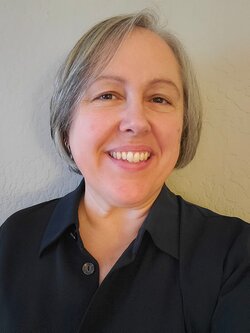Research for Social Impact: FMSH Partners with ISKME to Provide Social Impact Services


RISE Framework
ISKME’s approach to the evaluation enterprise entails the incorporation of evaluative evidence into the initial design and ongoing operation of programs and policy decisions. The purpose of this approach is to embody learning in action, and provide a process through which stakeholders are empowered to collaboratively test ideas and identify opportunities for improvement. The foundation of this work is based in understanding the goals of grant-funded programs and initiatives and the needs of the communities they impact—their unique context, practices, and perspectives. This action oriented, human centered approach, which we call the RISE Framework, is part of every aspect of our research, and is guided by the following principles:
- Relational - Stakeholders at all levels are engaged in the evaluation effort in order to create a collaborative experience and calibrate expectations toward robust research outputs.
- Inquiry based - The needs of internal and external stakeholder groups are gathered and cycled into research design, implementation and outputs.
- Social impact oriented - All projects are viewed through the ultimate lens of desired social impacts based on client needs—whether they be enhanced student learning, instructional development, or education policy change, to name a few.
- Empathetic - Tested diversity and inclusion frameworks serve as a starting point for our research services, so that the needs of all affected populations are served.
Action Oriented Research
ISKME’s action oriented approach to research is illustrated in the infographic above. Based on the specific context, a customized pathway for social impact is developed, as outlined below.
Design: Design evaluative measures and metrics in collaboration with clients as part of early program design or start of a program’s implementation, in these three steps:
1. Identify project stakeholders
2. Identify what success looks like, meaning, how will things be different if the project succeeds
3. Illuminate measurable outcomes (even if they might be hard to measure).
Test: Pilot test measures and metrics by gathering input from stakeholders, including those who represent lived experience (e.g., students, educators), including:
4. Apply framework to test for diversity and inclusion so that all affected stakeholders are included and served
5. Go through iterative design process, test ideas
6. Create feedback loops with various stakeholders
Improve: Iterate as program is implemented, refine as needed:
7. Devise monitoring mechanisms to be put in place
8. Develop a plan for transforming findings into action (such as enacting policy, moving past a pilot phase, turning theory into practice).
9. Make improvements to proposal submission, and receive funding!
Integrate: Supporting the incorporation of evaluation findings into program and policy decisions so that the full potential of evaluation products is realized. Finally, and iteratively:
10. Collaboratively analyze research data with input from stakeholders
11. Integrate findings from research into funded programs
This approach is exemplified through the knowledge management and open education research ISKME has conducted over the past 18 years. Measuring the impact of, for example, open education, isn’t just about assessing adoption rates or costs saved through the use of OER. Through our work with open education field-builders, including the William and Flora Hewlett Foundation, the Shuttleworth Foundation, the Michelson 20MM Foundation, and UNESCO, we have developed “hard to measure” social impact metrics that serve as a starting point for the clients we support. With an eye toward lived experience and the authentic audiences, it is important that research for social impact in education is also based on the need for culturally relevant, accessible learning experiences for all students. In doing so, this approach strives to look beyond traditional measures of efficiency and return on investment, to meaningful high impact change.
The author
Lisa Petrides, Ph.D. is founder and CEO of ISKME, Institute for the Study of Knowledge Management in Education, a global nonprofit dedicated to democratizing access to education. Her work includes the development of ISKME's award winning OER Commons, a digital public library of open educational resources and collaboration platform that facilitates the discovery and improvement of high-quality digital resources that are free, openly licensed, and available for a diverse range of learners. A former professor in the Department of Organizational Leadership at Columbia University, Teachers College, Petrides has advised and led development efforts that have enabled schools, colleges, universities, ministries of education, and the organizations that support them to expand their capacity to use data and information, and create inclusive knowledge-driven environments focused on teaching and learning. Petrides received an MBA from Sonoma State University, and a Ph.D. in Education Policy from Stanford University.
About the Virtual Summit on Impact

Watch the replays of the 8 sessions, daily highlights and associated resources to relive these four days of engaging content and thought-provoking conversations.
Visit the website of the 1rst edition of the Virtual Summit on Impact
Related articles
Hal Plotkin, Institute for the Study of Knowledge Management in Education | Leadership styles matter: The key finding for grantmakers and grantees from the Virtual Summit on Impact
Emmanuel Kattan, Alliance Program - Columbia University | Restoring Trust, Delivering Impact
Alexandra Duperray, Fondation Maison des sciences de l'homme | Circulation of knowledge: what impacts for the research landscape and its actors? The case of the Atlas mobility program in the MENA region





